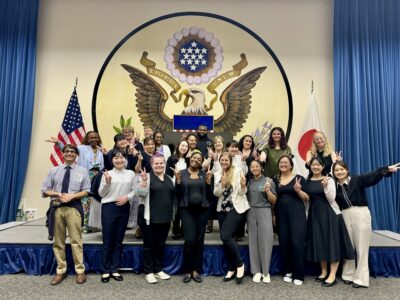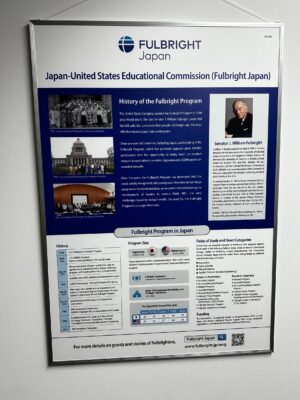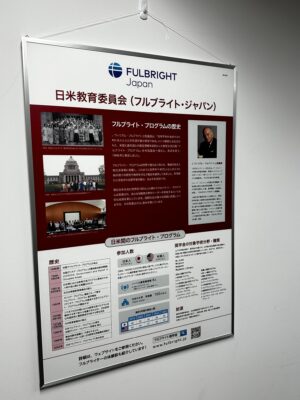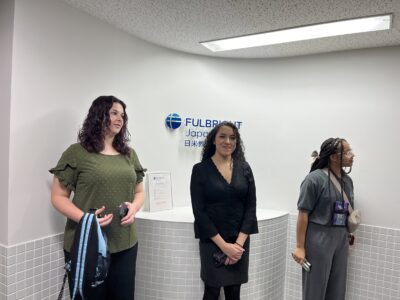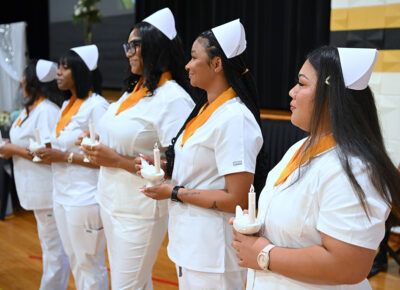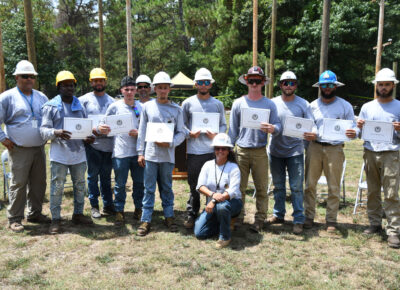FTCC students and faculty traveled to Japan this month as part of the U.S.-Japan Conference on Cultural and Educational Interchange (CULCON) grant program. During the visit, FTCC Dean of Arts & Humanities Dr. Kenjuana McCray will document the journey in a series of blog posts.
Read: FTCC receives prestigious grant for US-Japan cultural exchange
Update 2: Baseball, brush painting techniques, and traditional drums
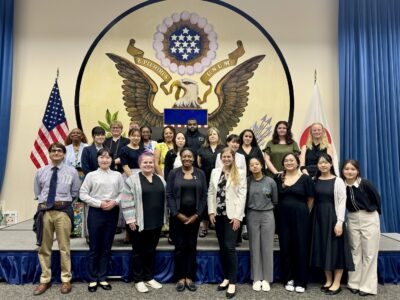
Students and faculty from FTCC and Kyoritsu University stand in the U.S. Embassy in Japan on May 21, 2024. [Dr. Kenjuana McCray photo]
Update 1: May 22, 2024: FTCC students, faculty visit Embassy with “Grandmother of Juneteenth”
We arrived in Japan on Monday, May 20.
The following morning, May 21, several students, Drs. Melinda and Sidney Pash and I attended a meeting with Jeffrey Kim, the Executive Director of Fulbright, named after the late U.S. Senator J. W. Fulbright. Sen. Fulbright believed that international exchanges were the most effective way to promote global peace. The strong relationship between Japan and the U.S. was a recurring theme throughout our trip, emphasized in various discussions. Fulbright programs are of mutual interest to both countries, with 160 nations including Japan participating. Mr. Kim highlighted the ongoing demand for English teachers and the desire for professors who can educate about America in Japan. He also noted that Disaster Management and response are highly sought-after fields.
On Tuesday, May 21, we visited the U.S. Embassy in Tokyo, Japan, to attend a Juneteenth event featuring Dr. Opal Lee, affectionately known as “The Grandmother of Juneteenth.” Dr. Lee earned this title by walking from Fort Worth, Texas, to Washington, D.C., in 2016, advocating for Juneteenth to become a federal holiday, which President Biden enacted in 2021. The initial goal was 5,000 signatures to present to Congress, but the movement garnered 1.5 million signatures.
Juneteenth marks a significant moment because, despite the Emancipation Proclamation in 1863, enforcement was lax, and many remained enslaved. On June 19, 1865, over 250,000 people learned they were freed, over two years after the Proclamation. Dr. Lee emphasized that if people can be taught to hate, they can also be taught to love, and that freedom belongs to everyone. Her invitation to Japan represents Juneteenth’s role as an international bridge.
The day concluded with interactions between foreign service officers, Dr. Nkemjika Ofodile-Carruthers, a Mansfield Fellow with the Department of Education, Sarah Belsouv, a Foreign Service Officer, and students from both FTCC and Kyoritsu University, who had the opportunity to introduce themselves and engage with the Mansfield Fellows.
— Dr. Kenjuana McCray
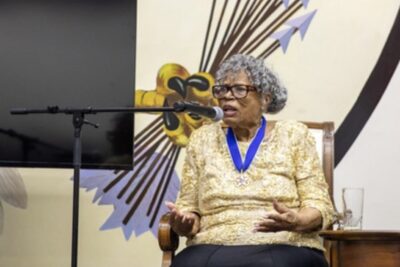
Dr. Opal Lee, known as the “Grandmother of Juneteenth,” speaks at the U.S. Embassy in Tokyo.
